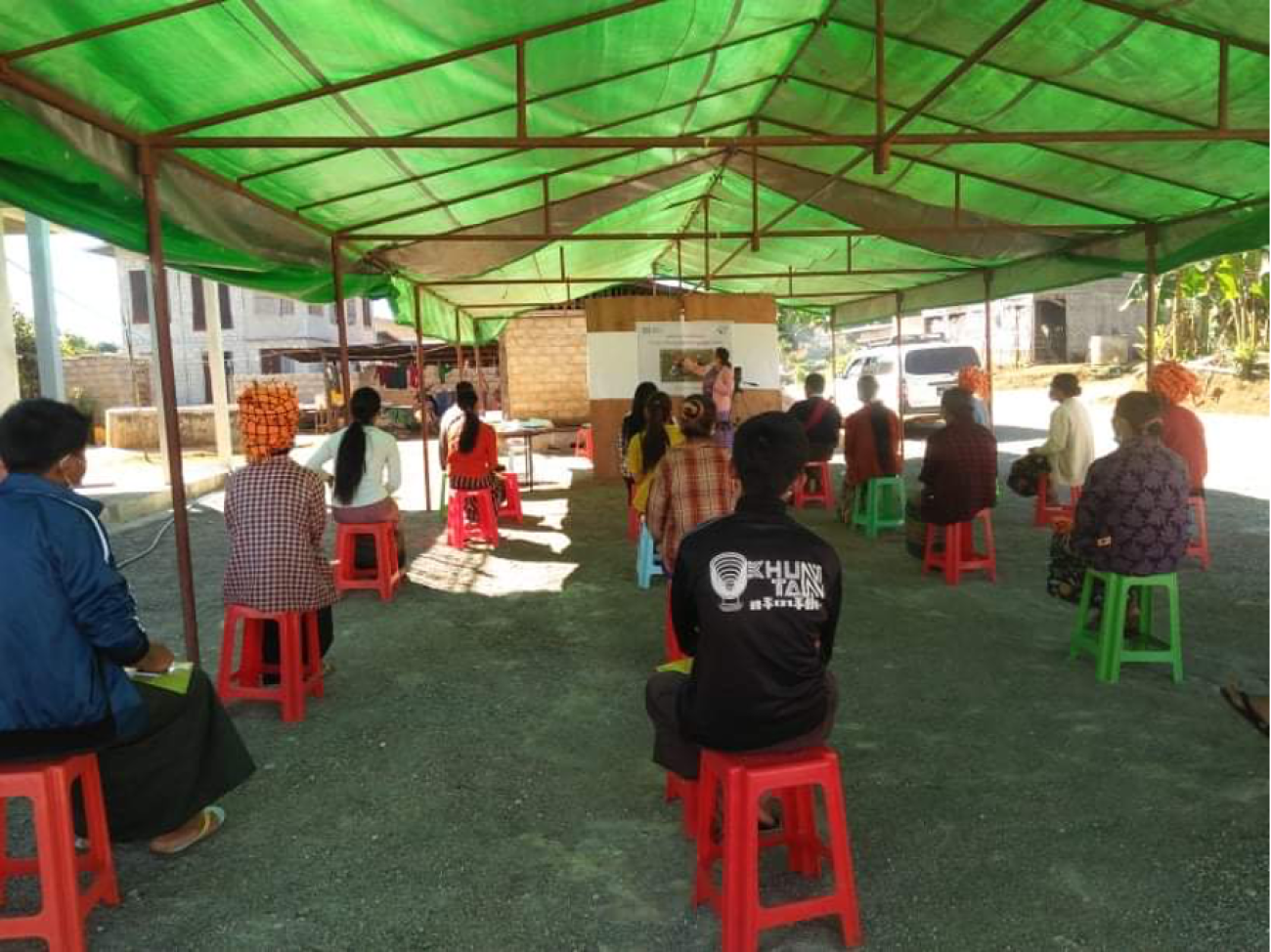Since the beginning of the COVID-19 pandemic in 2020 and in the wake of the ongoing third wave of infections, the ILO has been supporting workers and employers on the prevention and mitigation of COVID-19 in workplaces in the garment sector, agriculture, construction, and manufacturing through trainings, tailored messages and delivery strategies to reach groups such as Small and Medium Enterprises (SMEs) and migrants.
ILO has delivered a training package on COVID 19 occupational safety and health for SMEs reaching 2,962 participants from 1,190 SMEs. A further 151 participants from 29 SME factories were trained on a specific manufacturing COVID-19 package. The ILO has also supported the customization of COVID-19 prevention and mitigation training packages for employers and workers in the garment, agriculture and construction sectors. A total of 655 (409 women) participants were trained in the garment sector, a further 2,275 (1,301 women) farmers were trained in the agriculture sector, and 238 employers and workers in the construction sector were trained.
As migration patterns are disrupted, migrant workers also face significant challenges arising from the pandemic. Many remain in migrant centres in border areas that face barriers in dealing with the pandemic, and in response, the ILO and WHO jointly delivered COVID-19 awareness raising and prevention training to migrant workers and civil society organizations. Additionally, Personal Protective Equipment (PPE) and hygiene products were also provided to for 300 migrant workers living in quarantine centres.
In conjunction with the unpredictable nature of the COVID-19 pandemic, several challenges remain in the current operating environment brought about by the military takeover. Security concerns and the limitations of online delivery platforms in some sectors (e.g. garment and manufacturing) affect the provision of on the ground support for workers and employers in implementing and sustaining workplace measures.
ILO Liaison Officer, Donglin Li stressed that the needs of Myanmar are higher than ever. “We are committed to continuing to provide support for vulnerable workers wellbeing, health and livelihoods who have been impacted by COVID-19 particularly vulnerable workers, communities and workplaces, including those in rural and isolated areas.” – he said.
The ILO’s COVID-19 response and recovery efforts have been delivered through projects with funding support from the Swiss State Secretariat for Economic Affairs (SECO), Norwegian Agency for Development Cooperation (NORAD), Vision Zero Fund, and The Safety + Health for All (SHFA) project, funded by the Government of Japan.



